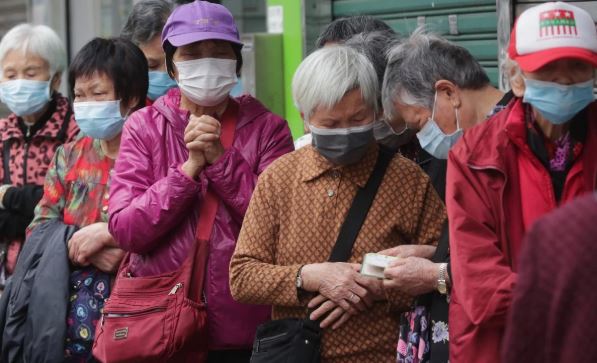The elderly are most at-risk when it comes to the most dangerous effects of the Coronavirus, the disease from which is called COVID-19. Those with pre-existing conditions like diabetes, heart disease, and lung disease are also at-risk.
However, this is not a reason to panic.

Image from the South China Morning Post
Here are steps recommended by experts to help prevent the spread of the coronavirus, especially in elderly facilities or nursing homes.
The elderly are at greatest risk
According to the study by the Journal of American Medical Association (JAMA), children under 10 account for 1% of COVID-19 cases, while those between 30 to 79 make up nearly 90%.
The mortality rate increases with age, according to the World Health Organization.
“Older people and people with underlying health conditions, like heart disease, lung disease and diabetes, for example, were about twice as likely to develop serious outcomes versus otherwise younger, healthier people.” This is according to Dr. Nancy Messonier, director of the National Center for Immunization and Respiratory Diseases (NCIRD).
How to lower your risk of COVID-19?
Elderly people living in areas where there are sharp rises in coronavirus cases should take special precautions.
Here are some ways they can prevent illness and exposure to the virus.
- social distancing or avoiding crowded places and public gatherings
- avoiding close contact with sick people
- avoid touching eyes, nose, and mouth
- staying at home when you’re sick
- observing proper hygiene and sanitation practices when you’re coughing or sneezing, such as sneezing with a tissue and throwing tissue in the trash
- Cleaning and disinfecting frequently touched items and surfaces with regular household cleaning sprays and wipes
As for masks, experts say healthy people shouldn’t use them and it won’t protect against the virus. Panic-buying masks may also use up supplies that healthcare providers need more.
In fact, those who wear masks improperly may even increase their risk of infection, says US Surgeon General Dr. Jerome Adams.
What else should we do?
Here’s what we can do:
- Recognize that COVID-19 is a new and concerning disease, but outbreaks can be managed with the right preparations and the right response
- Most people will recover from this
- Practice the most important preventive measure against COVID-19: frequent hand-washing and covering the mouth when sneezing or coughing
- Keep updated on the COVID-19 symptoms as more news and information come out as experts learn more about the strategies and response activities
- Adopt more stringent social distancing practices especially with the elderly population
The bottom line is, COVID-19 will not cause severe symptoms to most people who contact it. However, elderly people with pre-existing conditions may be severely affected. This is why stringent and strict measures must be put in place.
Recent Comments